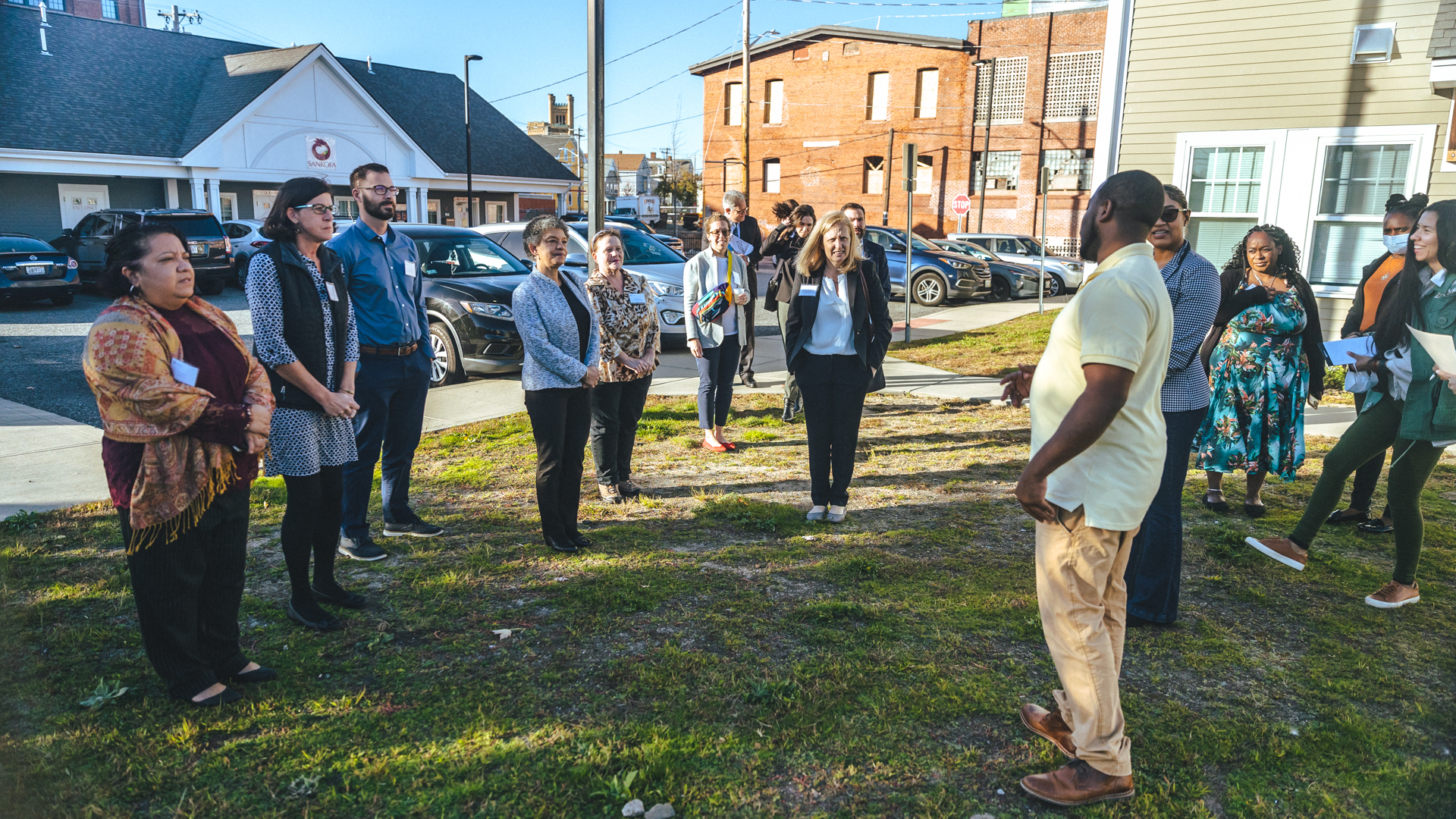Boston Fed’s Collins visits Rhode Island to hear from community leaders 
Regional Fed chief says on-the-ground info gathered on regional trips informs policy choices 
New Federal Reserve Bank of Boston president Susan M. Collins continued her tour of New England on Thursday, meeting with business and community leaders in Providence, Rhode Island, as she visited her third state in six weeks.
Collins, who took over as Boston Fed president in July, visited Connecticut on Sept. 28, then Maine last month. At her first stop Thursday, she told the Providence Chamber board of directors that the trips inform her work as a policymaker by helping her get to know local communities and their concerns.
“What we learn by hearing what you’re engaged with, what you’re seeing, how you’re thinking about the economy and your institutions and businesses is incredibly valuable,” Collins said.
Chamber board members told Collins that inflation and supply chain challenges have been a drag on local business growth, and they expressed concerns about a possible economic downturn.
Board member Rick Metters, a vice president at Fidelity Investments, spoke of persistent gaps he's seeing between the skills job seekers are offering and the requirements of open positions. He added that, overall, it's been a struggle to find and retain workers.
“Even pre-pandemic, talent issues were paramount for us and were particularly challenging in the technology field,” he said. “That is only exacerbated now.”
Collins later toured the Cambridge Innovation Center Providence and met with entrepreneurs from sectors including real estate, renewable energy, and venture capital.
“There are a lot of (challenges) that the pandemic may have exacerbated,” Collins said. “But there are also some things (now being created) that are dynamic and exciting.”
Afterward, participants spoke with Collins about issues including economic mobility, wealth disparities, and the challenges facing the state’s small businesses and entrepreneurs. They added Rhode Islanders are increasingly being priced out of the housing market by wealthier buyers from out of state.
6 images

Housing was also a key topic later in the day when Collins met with residents and Working Cities Challenge team members from Providence, Newport, and Cranston. The challenge is a Boston Fed-supported community development initiative that unites residents across various sectors (e.g., business, social services) to take on tough local problems in postindustrial New England cities.
During the discussion, community members told Collins that housing is the top concern of many of the state’s low-income and immigrant communities, followed by child care. And they said the issues can be linked.
Full time jobs with hourly wages often don’t pay enough for families to rent even a two-bedroom apartment, said Annette Mann Bourne, director of policy for HousingWorks RI and a member of OneCranston, that city’s Working Cities Challenge team.
But a lack of child care can make it tough to land even that kind of work, said Jessica Vega, director of the Dunamis Synergy initiative in Providence, which helps support young parents and families.
“It’s hard for families to get a full-time job if they don’t have access to child care,” she said.
The Working Cities teams said they’re trying to address these issues through working groups, collaboration with residents, and partnerships with local organizations.
In a talk to the group, Collins said she’s been committed throughout her career to hearing about experiences and concerns from people from all corners, and that their voices are an important factor in her decisions as a policymaker. The economy is much more than numbers and data, she said.
“It’s real people’s lives” Collins said. “I think that there are many people … whose voices haven’t been heard.”
Media Inquiries? 
Contact our media relations team. We connect journalists with Boston Fed economists, researchers, and leadership and a variety of other resources.

 About the Authors
About the Authors
Amanda Blanco is a member of the communications team at the Federal Reserve Bank of Boston.
Email: Amanda.Blanco@bos.frb.org
Site Topics
Keywords
- working cities ,
- working cities challenge ,
- Rhode Island ,
- housing ,
- child care






